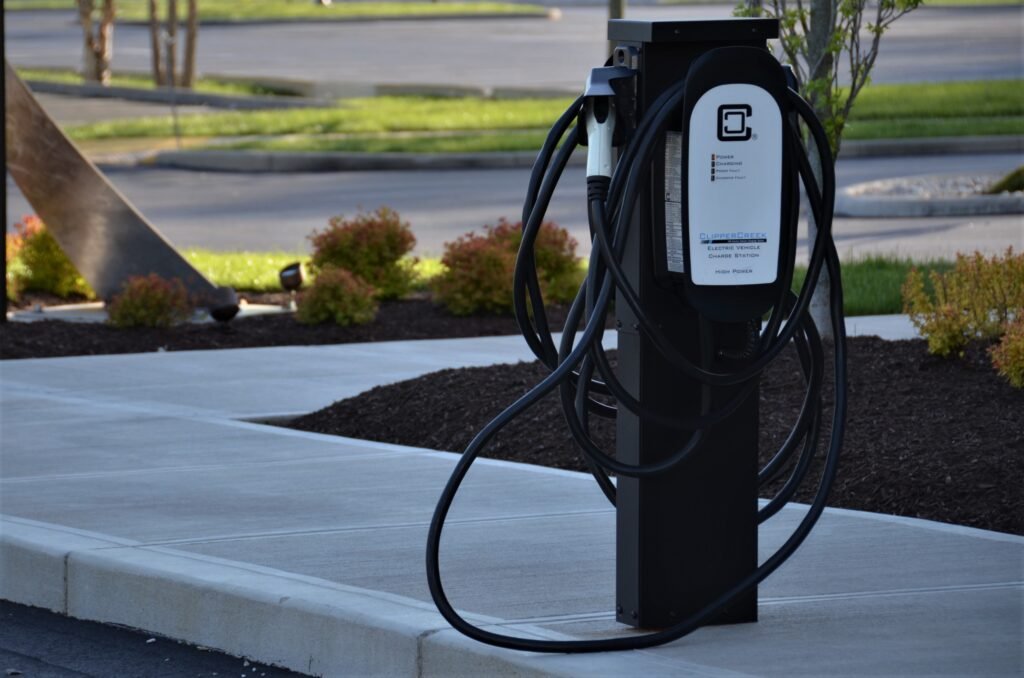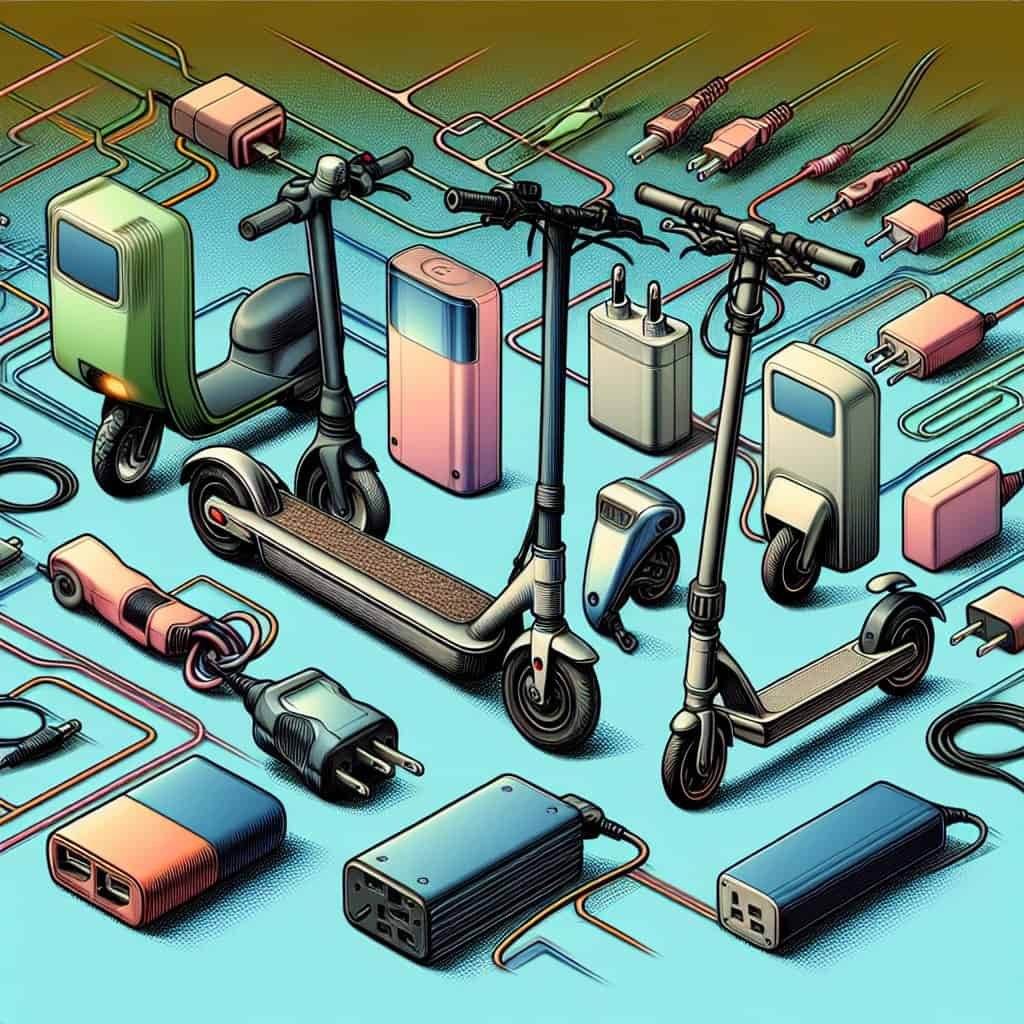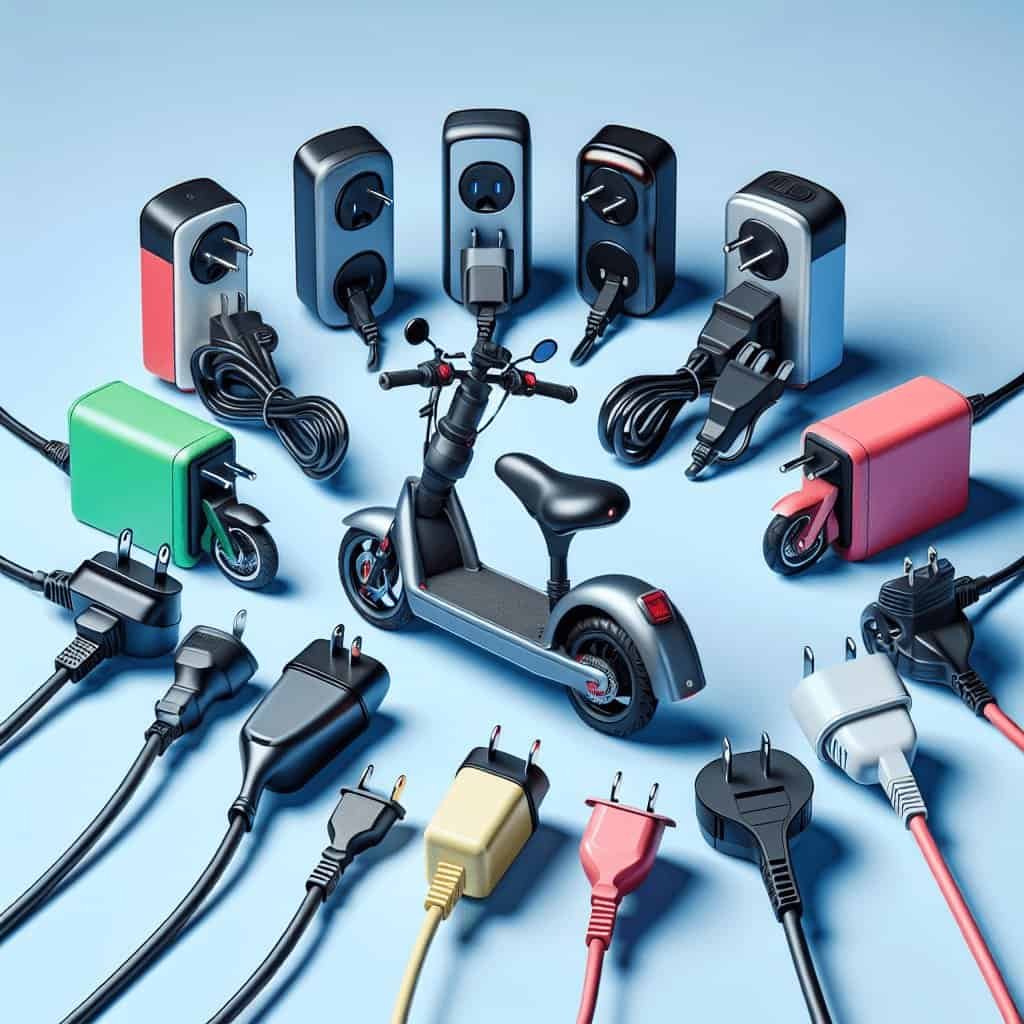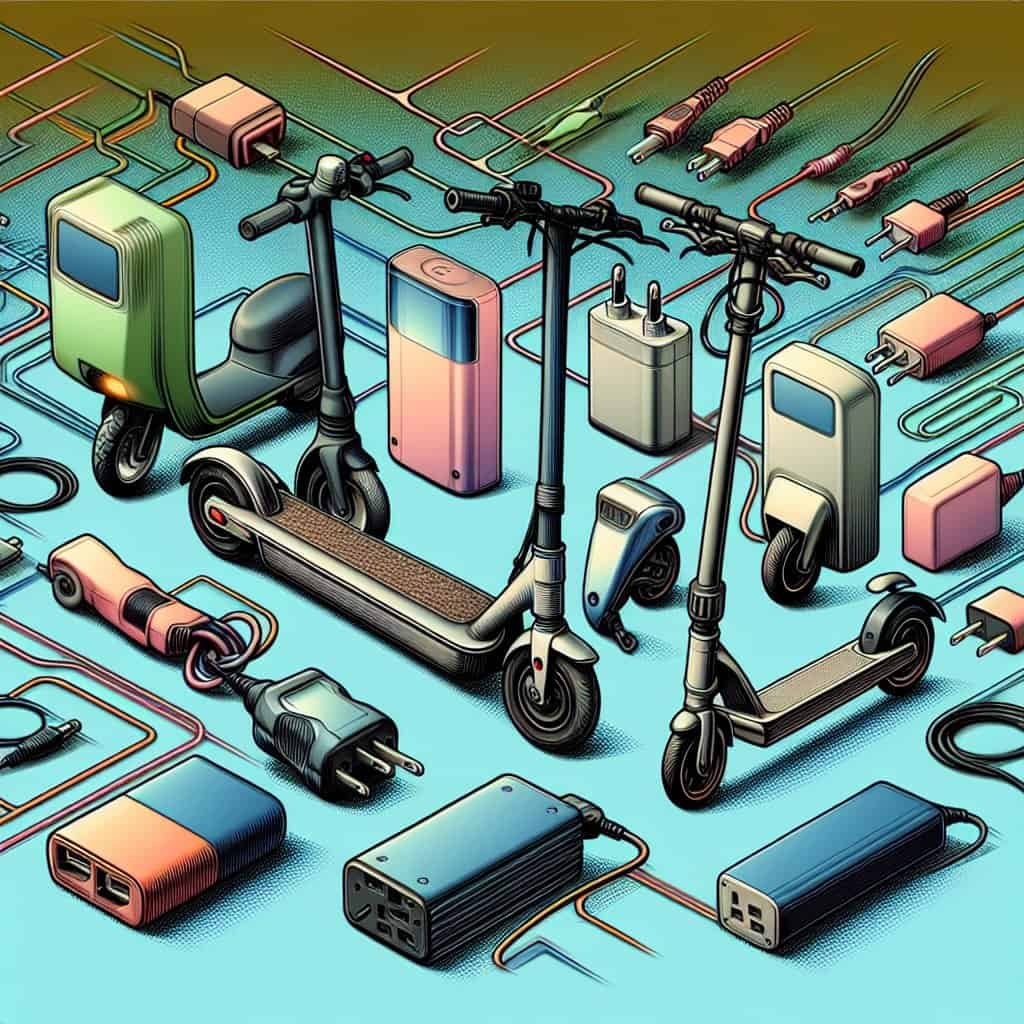Have you ever wondered if you can use any type of charger for your electric scooter, or if it has to be the manufacturer’s? Well, we’ve got the answer for you! In this article, we’ll explain the importance of using the correct charger for your electric scooter and why opting for the manufacturer’s charger is usually the best choice. So, if you’re ready to find out more about charging your electric scooter, buckle up and let’s get started!
Charger Compatibility
Understanding charger compatibility with electric scooters
When it comes to electric scooters, charger compatibility is a crucial aspect to understand. Not all chargers are created equal, and using the wrong charger can have significant repercussions on your scooter’s performance and battery life. To ensure the best charging experience and maintain the longevity of your electric scooter, it is essential to comprehend the ins and outs of charger compatibility.
Types of chargers for electric scooters
Electric scooters come with different types of chargers, each designed for specific models and brands. The two main types of chargers are the manufacturer’s charger and universal chargers. Let’s delve into each type and explore their compatibility and benefits.
Manufacturer’s Recommendations
Importance of following manufacturer’s recommendations
Manufacturers know their electric scooters inside out, and they provide specific charger recommendations for a reason. Following the manufacturer’s recommendations is crucial to ensure optimal charging performance and protect your electric scooter from potential damage. Straying from their guidelines can void your warranty and lead to safety risks, so it’s always best to heed their advice.
Benefits of using manufacturer’s charger
Using the manufacturer’s charger offers several benefits. Firstly, it guarantees compatibility, as the charger is specifically designed for your electric scooter model. This compatibility ensures the correct voltage and charging capacity, maximizing efficiency and reducing charging time. Secondly, using the manufacturer’s charger maintains the scooter’s warranty, ensuring that any potential issues are covered and resolved by the manufacturer. Lastly, it provides peace of mind, knowing that you are using the recommended and trusted charger for your electric scooter.

Universal Chargers
Overview of universal chargers
Universal chargers are designed to be compatible with multiple electric scooter models and brands. They offer convenience and flexibility, allowing you to charge different scooters with a single charger. Universal chargers typically have adjustable voltage settings and various connector types to accommodate different electric scooters.
Pros and cons of using universal chargers
Using universal chargers has its advantages and disadvantages. On the positive side, they offer versatility and can be a cost-effective option, especially if you own multiple electric scooters. Additionally, universal chargers are often readily available, making them convenient for those who frequently travel with their scooters.
However, there are some drawbacks to consider. Firstly, universal chargers may not provide the optimal charging capacity or voltage for your specific scooter model, leading to prolonged charging times or underperformance. Secondly, using a universal charger can potentially void your scooter’s warranty if any damage occurs due to incompatible charging.
Charging Time and Efficiency
Effect of charger on charging time
The charger you use directly affects the charging time of your electric scooter. The manufacturer’s charger, designed for your specific model, ensures the optimal charging capacity and voltage, resulting in quicker charging times. Using a charger that does not match your scooter’s specifications may lead to slower charging, which can be inconvenient, especially if you rely on your scooter for daily commuting or transportation.
Efficiency comparison between manufacturer’s charger and other chargers
Efficiency is key when it comes to charging your electric scooter. The manufacturer’s charger is carefully designed to provide the most efficient charge, ensuring that your scooter’s battery reaches its full capacity without overcharging. Other chargers, including universal chargers, may not provide the same level of efficiency, potentially leading to battery inefficiencies and decreased overall performance.

Safety Considerations
Importance of safety when using chargers
Safety should always be a top priority when using chargers for your electric scooter. Chargers play a vital role in maintaining the integrity of the scooter’s battery and ensuring safe operation. Using the wrong charger can result in overheating, battery damage, and even fire hazards. It is crucial to prioritize safety by adhering to the manufacturer’s charger recommendations and guidelines.
Risks associated with using non-manufacturer’s chargers
Using non-manufacturer’s chargers carries several risks. Firstly, these chargers may not have undergone the same rigorous testing and quality control as the manufacturer’s charger, potentially compromising their safety features. Secondly, non-compatible chargers can generate excessive heat during the charging process, posing a risk of battery damage or even explosion. Lastly, using a non-manufacturer’s charger can void your scooter’s warranty, leaving you liable for any damages or malfunctions.
Warranty and Liability
How charger choice affects scooter warranty
Choosing the wrong charger can have severe implications on your scooter’s warranty. Manufacturers typically include a clause in their warranty terms stating that using chargers other than the recommended ones voids the warranty. This means that if any issues arise with your electric scooter’s battery or charging system due to using a non-manufacturer’s charger, you may be responsible for any repair or replacement costs.
Liability implications of using non-manufacturer’s chargers
Using a non-manufacturer’s charger shifts the liability from the manufacturer to the user. If any accidents, damages, or malfunctions occur as a result of using a charger that is not recommended by the manufacturer, the responsibility falls on the user’s shoulders. Protect yourself and your investment by adhering to the manufacturer’s charger recommendations and guidelines.

Compatibility Testing
Testing the compatibility of different chargers
To ensure charger compatibility, it is advisable to test the performance and compatibility of different chargers with your electric scooter. This can be done by consulting with the manufacturer, reaching out to authorized service centers, or conducting online research to determine if other users have successfully used specific chargers with your scooter model.
Charging performance and scooter health assessment
During compatibility testing, it is essential to assess the charging performance and overall health of your electric scooter. Monitor the charging speed, battery temperature, and any unusual battery behavior while using different chargers. This assessment will help you determine the charger that provides the best performance and preserves the long-term health of your scooter’s battery.
Charger Selection Guidelines
Factors to consider when selecting a charger
When selecting a charger for your electric scooter, consider the following factors:
- Manufacturer’s Recommendations: Always prioritize using the charger recommended by the scooter manufacturer to ensure compatibility and safety.
- Voltage and Capacity: Ensure that the charger matches your scooter’s voltage and charging capacity requirements.
- Connector Compatibility: Verify that the charger connector fits securely into your scooter’s charging port.
- Quality and Safety Features: Opt for chargers from reputable brands that have undergone proper safety testing and certifications.
- Warranty Coverage: If maintaining your scooter’s warranty is a priority, choose the charger specified by the manufacturer.
Recommendations for choosing the right charger
To make an informed decision when choosing a charger, consider consulting with the electric scooter manufacturer, authorized service centers, or fellow scooter owners. Additionally, online forums and customer reviews can provide valuable insights into the experience of other users with different chargers. By gathering information and conducting compatibility testing, you can select the right charger that meets your needs while ensuring the safety and longevity of your electric scooter.

Alternative Charging Methods
Exploring alternative charging methods
While traditional chargers are the most common option for electric scooters, alternative charging methods have gained popularity, primarily driven by a desire for eco-friendly options. One notable alternative is solar chargers, which utilize the power of the sun to recharge your scooter’s battery. Other options include kinetic chargers that harness energy from scooter movement and regenerative braking systems that capture energy during deceleration.
Solar chargers and other eco-friendly options
Solar chargers offer a sustainable charging solution for electric scooters. By harnessing the sun’s energy, solar chargers can charge your scooter’s battery while reducing reliance on conventional electrical outlets. These chargers are particularly beneficial in areas with ample sunlight or for outdoor enthusiasts who enjoy extended scooter rides. While solar chargers may not match the efficiency of traditional chargers, they provide an eco-friendly charging alternative worth considering.
Expert Opinions and User Experiences
Insights from experts in the industry
Experts in the electric scooter industry often provide valuable insights and recommendations regarding chargers’ compatibility and usage. Their expertise can help shed light on the benefits and risks associated with various chargers. Professional advice and guidance from experts can be particularly useful when deliberating the selection and proper usage of chargers for your electric scooter.
User experiences with different chargers
User experiences are another valuable resource for understanding charger compatibility. Individuals who have used different chargers with their electric scooters can share firsthand accounts of their performance, efficiency, and any issues encountered. Reading user reviews, joining online communities or forums, and interacting with scooter owners can provide a wealth of information on charger compatibility and enhance your understanding of the topic.
In conclusion, charger compatibility for electric scooters is a crucial aspect to consider to maintain the optimal performance and longevity of your scooter’s battery. By adhering to the manufacturer’s recommendations, you can ensure the best charging experience while safeguarding your warranty and ensuring safety. While universal chargers offer convenience, it is essential to weigh their pros and cons and assess compatibility diligently. Charging time, efficiency, safety considerations, and warranty implications should all factor into your charger selection process. Exploring alternative charging methods and considering expert opinions and user experiences can further enhance your understanding and aid in making an informed decision. Always prioritize safety, efficiency, and compatibility when selecting a charger for your beloved electric scooter.


